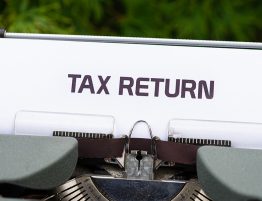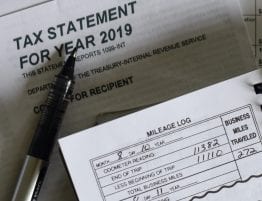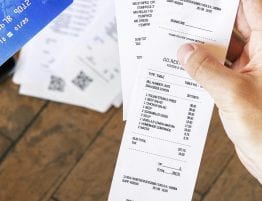
The IRS has announced that the agency will suspend most collection activities starting March 30, 2020, till July 15, 2020. The IRS is struggling with managing many of its essential services during the coronavirus pandemic. With the tax filing extended until July 15, 2020, the IRS will need to concentrate its efforts on processing returns and issuing refunds.
The IRS is suspending most collection activities except in these cases:
If the government risks losing the tax debt due to “exigent circumstances”, they may pursue collection. According to the IRS, an exigent circumstance is one involving the loss of opportunity for the government to assess or collect taxes due, such as the expiration of the statute of limitations, assets being placed beyond the reach of the government, or expiration of the 24-month mandatory acceptance Offer in Compromise period. (Generally, a taxpayer’s indication that he/she may file for bankruptcy is not an exigent circumstance.)
Even though the IRS will not initiate action to collect back taxes until July 15, it is in the taxpayer’s best interest to resolve the tax debt at the earliest. Interest and penalty on back taxes keep accruing, increasing the total amount to be paid, until a resolution is achieved.
Forbes shares details about the suspension of the IRS collection activities.
“In addition, the following are suspended:
- Meetings with taxpayers, powers of attorney, or third parties.
- Issuing Final Notices of Intent to Levy, levying financial accounts, or garnishing wages (including those issued through the Automated Collection System (ACS)). The IRS also has suspended automated levy programs.
- Requesting the issuance and filing of new Notices of Federal Tax Liens (re-filing of existing Notices of Federal Tax Liens is permitted)
- Scheduling or taking seizure actions.
- Issuing administrative summonses to taxpayers or third-parties.
- Sending letters proposing investigation or assessment of Trust Fund Recovery Penalties (unless the statute of limitations is about to expire).
- New passport certifications to the State Department of seriously delinquent taxpayers (existing certifications remain in place).
- Assignment of new collection cases to private debt collection agencies.
- Pursuing civil lawsuits against taxpayers.
Payments by taxpayers scheduled between April 1, 2020 and July 15, 2020 pursuant to Installment Agreements with the IRS are also suspended, and no Installment Agreements are to be defaulted during this period. The IRS will continue to deduct payments for Direct Debit Installment Agreements (‘DDIA’), but IRS employees may be able to suspend certain DDIA payments. If a taxpayer wants to stop all DDIA payments, the IRS advises them to contact their bank to stop the payments.
Taxpayers have the option of delaying payments due during the same period on accepted or pending Offers in Compromise until July 15, 2020, but interest will continue to accrue. No pending Offers In Compromise will be rejected before July 15, 2020 without the taxpayer’s consent and taxpayers may submit any requested documentation until that date.
These collection activities that are set to continue:
- Initial contact by IRS collection personnel with taxpayers, generally by telephone, for document collection. IRS telephone contact with taxpayers was previously uncommon, and under the Collection Memo, IRS collection officers who do call taxpayers will only do so to request documents.
- To avoid scams, taxpayers should be aware that IRS personnel will never telephone a taxpayer to: (a) Demand immediate tax payment; (b) Ask for debit or credit card numbers; or (c) Threaten to bring in local police, immigration officers or other law enforcement agencies.
- Assignment of case inventory to IRS Revenue Officers
- Establishing new Installment Agreements
- Determining whether a specific case is deemed Currently Not Collectible
- Requesting taxpayer credit reports and Department of Motor Vehicle information
- Referring Taxpayer Delinquency Investigations (TDI) for assessment under Internal Revenue Code § 6020(b) (permitting the IRS to prepare and process returns for non-filing taxpayers)
- Inputting adjustment requests to reduce tax liability, such as penalty abatements.
The following activities will also continue:
- Bankruptcy filings related to collections under court-imposed deadlines, including filing or amending proofs of claim, objecting to plans, responding to objections, and responding to motions to determine dischargeability of tax debts
- Certain activities in probate cases similar to those allowed in bankruptcy matters such as filing proofs of claim, processing requests for discharge of estate property, and reviewing and re-filing Notices of Federal Tax Liens. As noted, the IRS will not file new Notices of Federal Tax Liens unless there are ‘exigent circumstances’
- Campus collection activities, although, as set forth in the Collection Memo, IRS campus collection employees are to make taxpayer contacts ‘with caution and extreme sensitivity to the taxpayer’s personal circumstances,’ including not only a personal illness or monetary loss from the crisis, but also ‘stress and fatigue’.
IRS collection officers can still make routine contact with taxpayers for document collection during the suspension period. However, they are instructed not to continue with any enforcement action if the taxpayer does not provide the requested documents, unless the taxpayer’s circumstances are determined to be exigent.”
Fill out the form for a free and confidential consultation.








